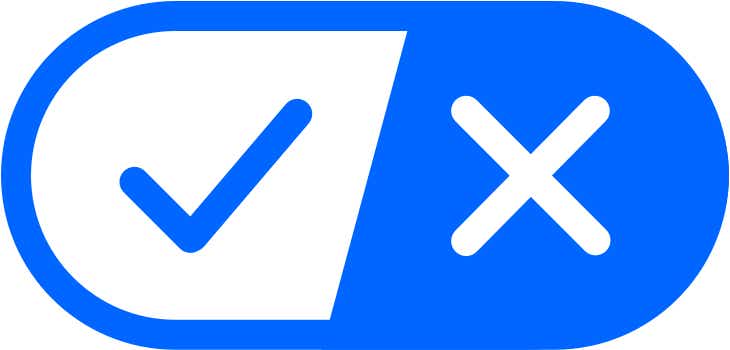What is Options Gamma?

What is Options Gamma?
Positive and negative options gamma explained
- Options gamma measures how options delta changes as the underlying stock price changes.
- Long options have positive gamma, which means the delta changes in the same direction as the stock price movement.
- Short options have negative gamma, which means the delta changes in the opposite direction of the stock price movement.
Often in the financial markets, there are two ways to understand something—mathematically and intuitively. Looking at options gamma mathematically, gamma is a second derivative of the Black-Scholes options pricing model (BSM).
Specifically, gamma is a partial derivative of the model taken with respect to price once and then twice. Given that we know options delta is a first derivative of the BSM with respect to price, gamma then effectively measures how delta itself changes when the underlying stock price changes.
Intuitively, the best way to explain gamma, just in a general sense, is to think of a car that's already moving. Its motion is measured basically by two different metrics: the car's speed and its acceleration. Well, in this context, the car's speed would be the delta, and its acceleration would be the gamma, so gamma shows how quickly something already moving (the delta) moves itself.
Positive gamma
Like what you would find with options vega, long options have positive gamma, or long gamma, and short options have negative gamma, or short gamma. Positive gamma means that your delta is going to change in the same direction as the stock price movement. Negative gamma means your delta is going to change in the opposite direction of the stock price movement.
So, for example, if you have a long call, then you’re positive gamma. That means if the stock goes up, your delta will go up, and if the stock goes down, your delta will go down. In other words, as the stock rises and your strategy works, your directional bias strengthens (you become more bullish). But if the stock falls and your strategy doesn’t work, your directional bias weakens (you become less bullish).
Negative gamma
Conversely, if you have a short call, then you’re negative gamma. If the stock goes up—the opposite of what you want—your delta goes down. More specifically, in this case it means it will become more negative, and thus you will be even more bearish than you were to start. But if the stock were to actually go down—what you want—then your delta will increase or, more specifically, become less negative, meaning you become less bearish as the strategy works in your favor.
Jim Schultz, a quantitative expert and finance Ph.D., has been trading the markets for nearly two decades. He hosts From Theory to Practice, Monday-Friday on tastylive, where he explains theoretical trading concepts and provides a practical application of those concepts to a trading portfolio. @jschultzf3
For live daily programming, market news and commentary, visit tastylive or the YouTube channels tastylive (for options traders), and tastyliveTrending for stocks, futures, forex & macro.
Trade with a better broker, open a tastytrade account today. tastylive, Inc. and tastytrade, Inc. are separate but affiliated companies.
Options involve risk and are not suitable for all investors. Please read Characteristics and Risks of Standardized Options before deciding to invest in options.
tastylive content is created, produced, and provided solely by tastylive, Inc. (“tastylive”) and is for informational and educational purposes only. It is not, nor is it intended to be, trading or investment advice or a recommendation that any security, futures contract, digital asset, other product, transaction, or investment strategy is suitable for any person. Trading securities, futures products, and digital assets involve risk and may result in a loss greater than the original amount invested. tastylive, through its content, financial programming or otherwise, does not provide investment or financial advice or make investment recommendations. Investment information provided may not be appropriate for all investors and is provided without respect to individual investor financial sophistication, financial situation, investing time horizon or risk tolerance. tastylive is not in the business of transacting securities trades, nor does it direct client commodity accounts or give commodity trading advice tailored to any particular client’s situation or investment objectives. Supporting documentation for any claims (including claims made on behalf of options programs), comparisons, statistics, or other technical data, if applicable, will be supplied upon request. tastylive is not a licensed financial adviser, registered investment adviser, or a registered broker-dealer. Options, futures, and futures options are not suitable for all investors. Prior to trading securities, options, futures, or futures options, please read the applicable risk disclosures, including, but not limited to, the Characteristics and Risks of Standardized Options Disclosure and the Futures and Exchange-Traded Options Risk Disclosure found on tastytrade.com/disclosures.
tastytrade, Inc. ("tastytrade”) is a registered broker-dealer and member of FINRA, NFA, and SIPC. tastytrade was previously known as tastyworks, Inc. (“tastyworks”). tastytrade offers self-directed brokerage accounts to its customers. tastytrade does not give financial or trading advice, nor does it make investment recommendations. You alone are responsible for making your investment and trading decisions and for evaluating the merits and risks associated with the use of tastytrade’s systems, services or products. tastytrade is a wholly-owned subsidiary of tastylive, Inc.
tastytrade has entered into a Marketing Agreement with tastylive (“Marketing Agent”) whereby tastytrade pays compensation to Marketing Agent to recommend tastytrade’s brokerage services. The existence of this Marketing Agreement should not be deemed as an endorsement or recommendation of Marketing Agent by tastytrade. tastytrade and Marketing Agent are separate entities with their own products and services. tastylive is the parent company of tastytrade.
tastyfx, LLC (“tastyfx”) is a Commodity Futures Trading Commission (“CFTC”) registered Retail Foreign Exchange Dealer (RFED) and Introducing Broker (IB) and Forex Dealer Member (FDM) of the National Futures Association (“NFA”) (NFA ID 0509630). Leveraged trading in foreign currency or off-exchange products on margin carries significant risk and may not be suitable for all investors. We advise you to carefully consider whether trading is appropriate for you based on your personal circumstances as you may lose more than you invest.
tastycrypto is provided solely by tasty Software Solutions, LLC. tasty Software Solutions, LLC is a separate but affiliate company of tastylive, Inc. Neither tastylive nor any of its affiliates are responsible for the products or services provided by tasty Software Solutions, LLC. Cryptocurrency trading is not suitable for all investors due to the number of risks involved. The value of any cryptocurrency, including digital assets pegged to fiat currency, commodities, or any other asset, may go to zero.
© copyright 2013 - 2026 tastylive, Inc. All Rights Reserved. Applicable portions of the Terms of Use on tastylive.com apply. Reproduction, adaptation, distribution, public display, exhibition for profit, or storage in any electronic storage media in whole or in part is prohibited under penalty of law, provided that you may download tastylive’s podcasts as necessary to view for personal use. tastylive was previously known as tastytrade, Inc. tastylive is a trademark/servicemark owned by tastylive, Inc.
Your privacy choices